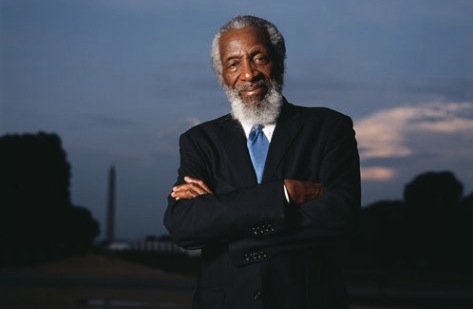
One of the chief joys of my youth was the endless hours my friends and I spent playing. Sports were our religion. I worshiped fervently. I shot baskets before school, played tag at recess and touch football or stickball or basketball after school until dinner, and did it all again for hours on the weekends.
In high school I was exposed to Plato and Socrates and the ancient Greek ideal of a sound mind in a sound body. As an undersized, aspiring athlete who tried to level the playing field through superior conditioning, I was particularly receptive to the message.
And yet, one vital piece of the puzzle of health—nutrition—was missing.


In a world before Gary Null, Dean Ornish, Joel Fuhrman, Andrew Weil, and Jeffrey Bland, I assumed health meant not smoking cigarettes or drinking coffee or doing drugs. I didn’t even know what I didn’t know until I read Dick Gregory’s Natural Diet for Folks Who Eat: Cookin’ with Mother Nature. Impassioned civil rights activist and comic, crusader against injustice and discrimination, Gregory has also devoted much of his life to helping people live healthier lives.
In Natural Diet for Folks Who Eat: Cookin’ with Mother Nature, Gregory not only challenges myths about nutrition; he offers positive recommendations for well-being. Vegetarianism, juice fasting, and raw foods, among other things, are part of his holistic plan for superior mental and physical health.
His book didn’t just expand my knowledge and alter my attitude; it changed my life.
Human beings are capable of wisdom—and folly. But one thing we all share is this: No one—American or foreigner, Democrat or Republican, theist or atheist—would ever knowingly put garbage in his or her gas tank. But, as Gregory aptly notes, most people put trash into their bodies every day—and that means we treat our cars better than our bodies.
Practicing psychotherapy has taught me that one reason we do this is because we see our bodies as enemies or opponents—entities to defeat, or subjugate and mold.
As I wrote in The Art of Flourishing, the body is a vessel of pleasure, a site of pain, a reminder of aging and mortality, and for some a source of guilt and shame. What I realized after reading Dick Gregory’s book was that the body is also a temple and our home, and it is crazy to despoil it. From then on, it became more difficult to mistreat my body.
Seeing our bodies as temples means we approach them with reverence and we strive to take exquisite care of them (which doesn’t mean idolizing or fetishizing them). We also listen to the feedback they give us and heed their messages, by not letting our minds dominate: “a healthy mind in a healthy body,” wrote the Roman poet Juvenal. We pay attention to illnesses and injuries. We build rest and exercise into our schedules. We treat food as medicine and fuel, not as a drug, and we eat for our physical health, not for our emotional needs.
I am very grateful that I encountered Dick Gregory at a formative time in my development. His ideas have nourished my lifelong respect for and interest in physical health. And his recipe for a shake with chia seeds isn’t half bad.
Post Disclaimer
This content is for informational purposes only and does not constitute medical advice. Please consult a healthcare professional for any medical concerns.



